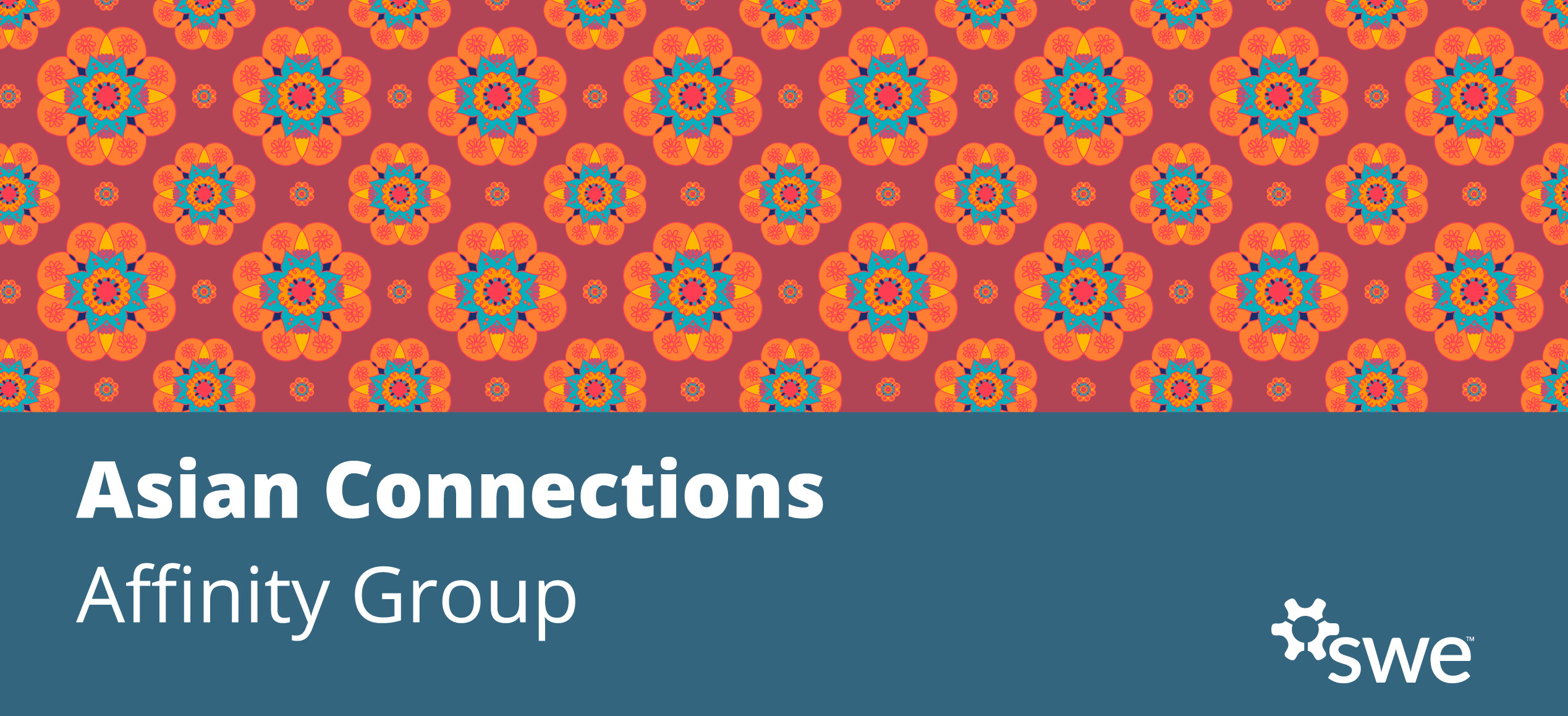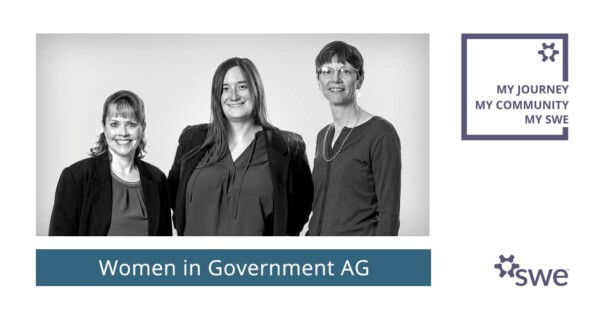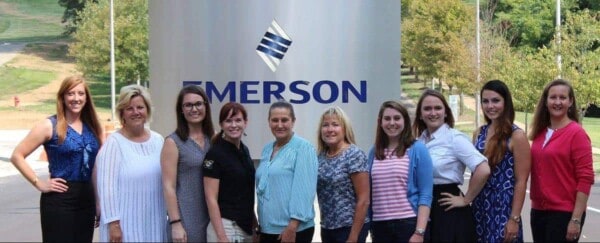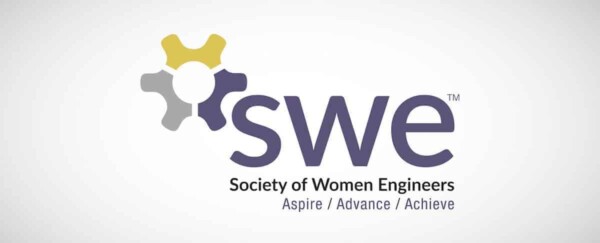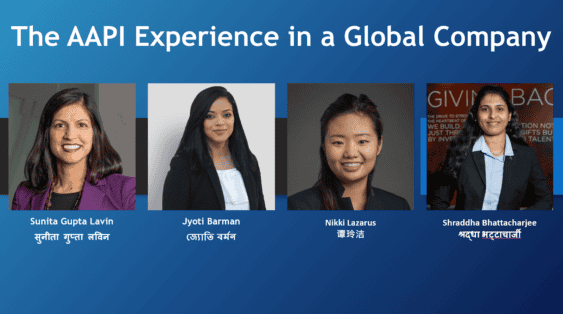
May is Asian American & Pacific Islander Heritage Month. According to the National Science Foundation, Asian women make up about 5% of the engineering workforce and only 1% of leadership. Compounding the low percentages, there is a leaky pipeline for Asians in the workforce.
Expectations for Asian women can be set unconsciously, stemming from the intersectionality of gender and Asian cultural norms. “Asians have been perceived by many as the ‘model minority:’ quiet, hardworking, studious, and rule-abiding [Psychological Science].” The problem with stereotypes is when people defy a stereotype, the reaction is often that of surprise or anger.
We are engineers who work at Burns & McDonnell, which is a global engineering, construction, and consulting company headquartered in the U.S. with offices in Canada, Mexico, the United Kingdom, and India. We work together with Asian women from all over the world, and below are our stories and perspectives as Asian women in today’s workforce.
Sunita Gupta Lavin (she/her/hers)
 I am an assistant department manager within the Transmission & Distribution division at Burns & McDonnell in Kansas City, Mo. My career has spanned distinct roles, industries, and companies ― from technical to project management to people management; from avionics to IT to telecommunications; and from Garmin to Burns & McDonnell. I am an active leader in the Society of Women Engineers (SWE) and passionate about diversity, equity, inclusion, and belonging (DEIB). I helped establish employee resource groups (ERGs) at both companies I’ve worked for, and I am an ally for Latinas through SWE’s Latinos Affinity Group (AG), as well as a member of the Asian Connections AG. I have a B.S. in computer engineering, an M.S. in electrical engineering, and an M.B.A. from the University of Nebraska-Lincoln. I am of Indian descent and have lived in Canada and the United States. I enjoy running and traveling with my husband, Peter, and have two pet bunnies.
I am an assistant department manager within the Transmission & Distribution division at Burns & McDonnell in Kansas City, Mo. My career has spanned distinct roles, industries, and companies ― from technical to project management to people management; from avionics to IT to telecommunications; and from Garmin to Burns & McDonnell. I am an active leader in the Society of Women Engineers (SWE) and passionate about diversity, equity, inclusion, and belonging (DEIB). I helped establish employee resource groups (ERGs) at both companies I’ve worked for, and I am an ally for Latinas through SWE’s Latinos Affinity Group (AG), as well as a member of the Asian Connections AG. I have a B.S. in computer engineering, an M.S. in electrical engineering, and an M.B.A. from the University of Nebraska-Lincoln. I am of Indian descent and have lived in Canada and the United States. I enjoy running and traveling with my husband, Peter, and have two pet bunnies.
Sunita’s Experience:
There is an expectation that Asian women should be passive and obedient [worklifelaw.org, p.4] ― both at home and in the workplace. Due to my upbringing, this was something I struggled with internally when I started my career at a different company. Even though others engaged in active discussions, I remember a specific instance when I had to muster up my courage to share a dissenting opinion. All of a sudden, I was holding my breath, waiting for someone to get mad at me or even strike me. Of course, that didn’t happen. But that’s what I had in my head. It took me almost a year of being in the workplace to overcome this belief. Since then, in meetings with my Asian colleagues across the globe, I’ve made a point of asking their opinions to make sure they feel comfortable piping up.
Another expectation of Asian women is to be humble. While Asian culture values humility, there can be a balancing act in the workplace. You want to be humble, but if you don’t let others know about what you have accomplished, they might not realize your contribution and value. I’ve even heard other successful Asian men and women leaders share that we should keep our heads down and work hard. While this may work some of the time, it can often limit your ability to get key assignments or promotions in the U.S. workplace. This presents a great opportunity for allies.
Anyone can be an ally, whether you are Asian or not! As an ally, you can help point out contributions your Asian colleagues have made in a small elevator speech or brag bite (bite-sized information about something cool that they’ve done). Encourage your Asian colleagues to create elevator pitches and brag bites for themselves. You can also praise your Asian colleagues publicly or privately, depending on their preference. If they are being humble and refusing a compliment, remind them that accepting praise shows that they are valuing the compliment giver’s opinion. It also adds to their arsenal of positive thinking! I highly recommend the book “Brag!: The Art of Tooting Your Own Horn Without Blowing It.” It really helped me understand how to share what I’m doing without being arrogant and putting others off. You can blend the tips from the book with your voice and the level of humility that suits you. For example, as a response to the typical “How are you doing?,” you could say something like, “I’m doing great! I am really proud of my team for hitting our milestone early last week because it means my production ideas gained us 5% in efficiency.”
Nikki Lazarus (she/her/hers)
 I am an assistant department manager within the Transmission & Distribution division at Burns & McDonnell in Atlanta. I have been a very active DEIB leader within Burns & McDonnell. I was one of the charter members of the Asian Pacific Islander ERG and currently serve as the co-chair for the ERG. I have been part of SWE since college and was part of SWE KC’s Professional Development committee for many years. I was born and raised in China before moving to the United States when I was 11. I obtained my electrical engineering degree from Bucknell University in 2017. I am an avid traveler, having been to 21 different countries.
I am an assistant department manager within the Transmission & Distribution division at Burns & McDonnell in Atlanta. I have been a very active DEIB leader within Burns & McDonnell. I was one of the charter members of the Asian Pacific Islander ERG and currently serve as the co-chair for the ERG. I have been part of SWE since college and was part of SWE KC’s Professional Development committee for many years. I was born and raised in China before moving to the United States when I was 11. I obtained my electrical engineering degree from Bucknell University in 2017. I am an avid traveler, having been to 21 different countries.
Nikki’s Experience:
In the seven years I have been with the company, I have had many opportunities to take on various responsibilities. With the help of great mentors and by working hard, I have been able to quickly climb to people manager within my division, but it has not always been a smooth path. I am well aware of the struggles Asian Americans, particularly Asian American women, experience in the corporate world. We face the double struggles of the glass ceiling and “bamboo ceiling.” Coined by Jane Hyun in her book “Breaking the Bamboo Ceiling: Career Strategies for Asians,” the bamboo ceiling describes the struggles that Asians encounter while attaining leadership positions in the U.S.
Asian American women are not only challenged by the general stereotypes against women in the workplace, but are also typecast with an additional set of stereotypes as being compliant, unfeeling, or hyperfeminine. As someone who is in her 30s but maintains a youthful appearance of someone in their 20s, I have often walked into meetings with people assuming I am an intern and not the manager. I would have to explicitly state my title to command attention. One way to mitigate this in meetings is to start with introductions by everyone. Additionally, I often feel the need to watch my tone so as not to come off too robotic. These are exactly the types of experiences that propelled me to help found the Asian Pacific Islander ERG at Burns & McDonnell. The API ERG started in 2021 with 50 members and has grown to 350 members. Together, with colleagues and allies, we want to make sure we break those stereotypes that create the glass and bamboo ceilings. As more Asian leaders rise, we are also fostering and mentoring future Asian leaders.
Jyoti Barman (she/her/hers)
 I am a project manager for the Transmission & Distribution division at Burns & McDonnell Canada in Toronto. Originally from India and having worked in three amazing countries (India, the U.S., and Canada) I have a deep appreciation for diversity and various cultures. I’m especially passionate about supporting and guiding others in embracing our company culture, which is inclusive and welcoming to everyone. I have a degree in architecture from Shivaji University, India, and a master’s in construction management from Texas A&M University, U.S. I’m a mom to two energetic boys, and I love spending my free time with them ― hiking, biking, swimming, and playing soccer. If there’s any energy left, I enjoy some me time by reading nonfiction and philosophical books.
I am a project manager for the Transmission & Distribution division at Burns & McDonnell Canada in Toronto. Originally from India and having worked in three amazing countries (India, the U.S., and Canada) I have a deep appreciation for diversity and various cultures. I’m especially passionate about supporting and guiding others in embracing our company culture, which is inclusive and welcoming to everyone. I have a degree in architecture from Shivaji University, India, and a master’s in construction management from Texas A&M University, U.S. I’m a mom to two energetic boys, and I love spending my free time with them ― hiking, biking, swimming, and playing soccer. If there’s any energy left, I enjoy some me time by reading nonfiction and philosophical books.
Jyoti’s Experience:
Reflecting on my career journey as an Indian woman working in the U.S. and Canada, I’ve encountered and overcome various challenges. When I first entered the corporate world in the U.S., I felt immense pressure to constantly prove myself by assimilating into a new and different work culture. This led to feelings of inadequacy and greatly impacted my work-life balance. Later, I learned that this is called imposter syndrome, and while common for many professionals, it is extremely common for Asian women. Over time, I’ve realized that I am inherently enough and don’t need to constantly seek external validation. My feelings of imposter syndrome also resulted in feeling unworthy of recognition. Fortunately, with the support of understanding managers and mentors, I learned to practice self-compassion and focus on my strengths rather than my weaknesses. Learning and continuing to speak up to acknowledge my own achievements have been helpful in my professional growth.
Navigating the cultural differences in how appreciation is expressed between India, the U.S., and Canada has been an enlightening experience. For example, when I was in India, I experienced appreciation made subtly through indirect gestures, such as casually mentioning it during one-on-one conversations, a lunch meeting, or a chai chat. In our culture, there is a tendency to acknowledge everyone’s contributions rather than singling out individuals for personal appreciation. However, I noticed a shift when I moved to the U.S. Personal achievements were often highlighted and celebrated during team meetings, town hall meetings, newsletters, etc., which initially felt uncomfortable to me. This cultural difference showed me that there are various ways of expressing recognition and that each culture has its own norms and values.
Shraddha Bhattacharjee (she/her/hers)
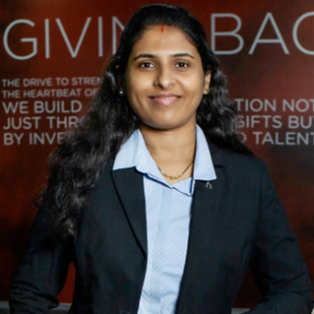 I began my professional journey with an international company, serving as a structural engineer for three years. Following a career hiatus of nearly four years due to marriage and child care responsibilities, I re-entered the workforce with renewed vigor, spending two years at an Indian firm. This experience provided me with insights into the contrasts between working at an Indian company and a global organization. I was privileged to join Burns & McDonnell India (BMI) a decade ago and now lead the Food & Beverage Structural team within the Global Facilities (GFS) division. My husband and I are from different regions in India, and we have two school-aged sons. We live in a communal family with my in-laws. I love to spend time with both sides of the family and to travel.
I began my professional journey with an international company, serving as a structural engineer for three years. Following a career hiatus of nearly four years due to marriage and child care responsibilities, I re-entered the workforce with renewed vigor, spending two years at an Indian firm. This experience provided me with insights into the contrasts between working at an Indian company and a global organization. I was privileged to join Burns & McDonnell India (BMI) a decade ago and now lead the Food & Beverage Structural team within the Global Facilities (GFS) division. My husband and I are from different regions in India, and we have two school-aged sons. We live in a communal family with my in-laws. I love to spend time with both sides of the family and to travel.
Shraddha’s Experience:
Even though I had a short-lived experience with an Indian company, I find notable differences when comparing it to my current position at Burns & McDonnell India (BMI), which is a global organization. The contrasts between my roles in the Indian firm and BMI are evident in areas such as management practices, workplace culture, career prospects, and work-life balance.
- Management Style ― While collaborating with a medium-sized Indian company, I observed they employed a top-down management style with centralized decision-making, reflecting a paternalistic approach that is common in Indian culture. In contrast, BMI adopts a more Western, participatory management style, valuing input from all staff members. At the beginning of this year, Burns & McDonnell Global CEO Leslie Duke initiated a company-wide survey regarding improvements to the current safety program. As a woman in a largely male-dominated company, being able to voice my opinion and be heard makes me feel more valued.
- Career Prospects ― At BMI, I’ve experienced unwavering support and guidance from my seniors and mentors. After dedicating nine years to the Oil, Gas & Chemical (OGC) division, a combination of my interests, relationships, and past successes have led to a new challenge with the Global Facility Services (GFS) division’s Food & Beverage business unit. At the Indian firm, I did not see opportunities for such advancement. Often people feel that focusing solely on your work will lead to advancement opportunities, but cultivating mentors and building relationships has been key in my career.
- Workplace Culture ― BMI fosters a culture of DEIB, encouraging female employees to express their views with confidence. Conversely, in many Indian firms, it remains a challenge for women, as a minority group, to courageously articulate their thoughts. The GFS Structural team consists of 40 members, of which only three are female, including myself. As the sole female leader in my department, I really appreciate having a manager who values all team members equally, regardless of gender. I am empowered to share my suggestions, insights, and any potential improvements, and am able to put forth my vision as a team leader. I, in turn, encourage and support the other female team members to voice their opinions.
- Work-Life Balance ― BMI encourages a healthy work-life balance through flexible work hours, remote working opportunities, and wellness initiatives for its employees. In contrast, attaining work-life balance in Indian companies can be more challenging due to extended work hours, cultural norms, and limited flexibility in work setup. My husband, son, and I live together in a joint-communal family with my mother-in-law and father-in-law. Honestly speaking, I am very fortunate to have a very supportive and open-minded husband and in-laws. While it was not always this way, we decided to support both careers, so he shares all the house chores and responsibilities with me. My mother-in-law encourages me to follow my dreams and regularly helps with child care. However, I am very aware that this scenario is not very common in India and even in my extended family. My husband and I alternate using our flexible schedules and remote working to help with doctor’s appointments and school activities for our family.
Final Thoughts
Remember that as an Asian woman, there are many ways to succeed in your career, and cultivating allies and supporters at work and home can be key to success. You are enough. You have the power to join support networks and/or create support networks for yourself and your colleagues. The SWE Asian Connections AG is here for you, and you can join with just a few clicks. Subscribe to our newsletter by going to your SWE member portal and opting in under Communication Preferences.
Author
-

SWE Blog provides up-to-date information and news about the Society and how our members are making a difference every day. You’ll find stories about SWE members, engineering, technology, and other STEM-related topics.
View all posts

